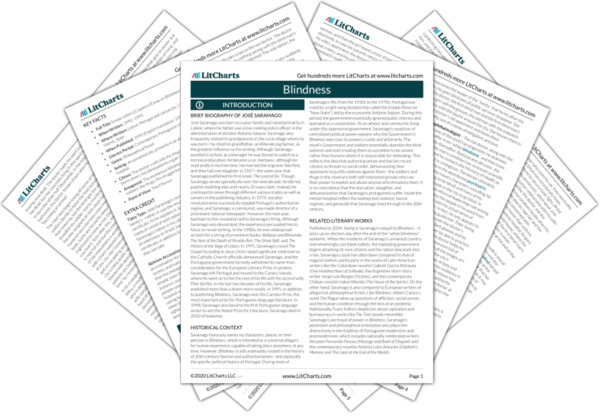The doctor’s wife inches closer and closer to accepting the moral authority that seems to have fallen into her lap, simply because of her inexplicable continued ability to see. Perhaps her sight has conferred a sense of responsibility on her, or perhaps it has simply allowed her to see the dehumanizing and horrific conditions in which all of the internees are living in a way that they others cannot. Either way, the doctor’s wife is still thinking about what to do in terms of morality, justice, and empathy, while the rest of the blind people are simply thinking in terms of self-preservation. While she has to fight people who are acting on this basis—like the guard who works for the thugs—she also empathizes with them, realizing that they are doing what they believe is necessary for their survival.
